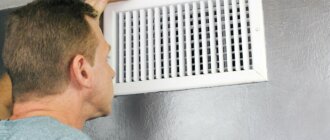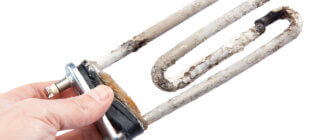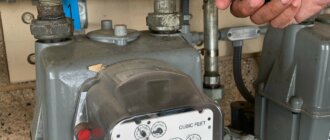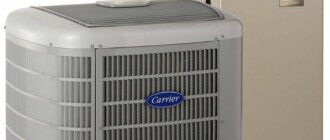Does Rain Damage My Heating and Cooling System Over Time?
As homeowners, we often worry about protecting our property from the elements. While we take measures to safeguard our homes from rain and snow, do we give the same attention to our heating and cooling system?
Rain is one of the most common weather conditions that affect HVAC units, but how much damage can it really cause over time?
In this blog post, we’ll explore the impact of rain on your HVAC system and provide tips for protecting it from water damage. So grab a cup of coffee (or tea!) and let’s dive in!
What Your HVAC System Consists
Your HVAC system is the critical component of your home that keeps you comfortable in all weather conditions. It consists of two main parts: the outdoor unit and the indoor unit. The outdoor unit contains the condenser coil, compressor, and fan motor, while the indoor unit houses the evaporator coil and air handler.
The condenser coil is responsible for releasing heat from inside your home to outside. The compressor pumps refrigerant between both units, transferring heat from one location to another. A fan motor blows cool air over these coils into your home or office space.
The evaporator coil absorbs hot air from inside your living space and cools it down using refrigerant before blowing it back out through ductwork or vents in various rooms.
Additionally, an air filter helps keep dust particles out of your HVAC system by trapping them before they enter either part of this vital machine!
An HVAC system works hard to maintain ideal temperatures throughout homes year-round!
The Impact of Rain on HVAC Units
Rain is a common weather condition that can impact your HVAC unit. While it may seem harmless, rainwater can cause damage to certain parts of the system if left unchecked. The outdoor unit or condenser is particularly susceptible to water damage from heavy rains.
When rainwater enters the outdoor unit, it can mix with dirt and debris inside, forming a sludge-like substance that blocks airflow and reduces efficiency. In addition, exposure to moisture over time can cause rust and corrosion on metal components like coils and fins.
While most modern HVAC units are designed to withstand some level of water exposure, prolonged exposure to rain can have long-term effects on your system’s performance and lifespan. Regular maintenance checks are essential in identifying any potential issues caused by rainfall early before they become more severe.
It is important to note that while rain can affect the outdoor component of your HVAC system, indoor parts are typically not affected as much by this weather condition. However, if you live in an area with high humidity levels or experience flooding indoors due to leaks or other reasons during rainy seasons, then there could be negative impacts on the indoor components too.
Taking precautions such as installing covers for your HVAC units or scheduling regular maintenance checks will ensure protection against water damage caused by rainfall and help maintain optimal performance for years to come.
Does rain harm the outdoor unit?
Rain is a common weather condition that homeowners don’t often worry about affecting their HVAC units. While rain itself may not harm your system, it can cause damage to the outdoor unit if left unprotected.
The exterior of an HVAC unit is typically made up of metal components that are designed to withstand various weather conditions. However, prolonged exposure to moisture can lead to rust and corrosion over time. This can weaken the structural integrity of the system and potentially lead to costly repairs or replacement.
Additionally, heavy rainfall can also cause debris such as leaves and dirt to accumulate around the outdoor unit. This buildup may block airflow and hinder its ability to function efficiently.
To minimize potential damage from rain, it’s important for homeowners to ensure their HVAC units are properly installed with adequate drainage systems in place. It’s also recommended that you consider investing in an appropriate cover or shelter for additional protection during extreme weather events.
While rain alone won’t necessarily harm your HVAC system immediately, neglecting proper maintenance and protection measures could lead to long-term consequences down the line.
Can rain affect the indoor parts of the system?
While the outdoor unit of an HVAC system is more exposed to rain, it’s still important to consider how rain can impact the indoor components. Rainwater can find its way into your home through any openings or leaks in your roof, walls, or foundation. If water enters your home and comes into contact with any part of your HVAC system, it can cause damage.
One major concern is that moisture can lead to mold growth within the ductwork and other parts of the system. Mold spores are known allergens and exposure to them could cause respiratory problems or exacerbate existing conditions like asthma.
Additionally, if electrical components come into contact with water, they could short-circuit, which poses a fire risk.
It’s important to ensure that your HVAC system is properly installed and sealed off from any potential points of entry for water. Regular maintenance checks should also include inspections for signs of moisture damage or leaks so they can be addressed quickly before causing larger issues down the line.
Long-term effects of rain on the system
While rain may not have an immediate impact on your HVAC system, its long-term effects can be damaging. Over time, exposure to rainwater can cause rust and corrosion in the outdoor unit’s metal components, such as coils and fins. This can lead to decreased efficiency and even complete failure of the unit.
Additionally, if water is able to penetrate the indoor parts of your HVAC system due to poor insulation or faulty seals, it can cause electrical damage and potentially even mold growth. These issues can be costly to repair and pose health risks for you and your family.
Another long-term effect of rain on your HVAC system is increased wear and tear on components that are exposed to moisture over extended periods of time. This wear and tear may result in more frequent breakdowns or malfunctions in the future.
To prevent these long-term effects from occurring, it’s essential to take proactive steps towards protecting your HVAC system from rain damage. Regular maintenance by a professional technician can help identify any potential issues before they become major problems. Additionally, installing covers or enclosures around outdoor units can provide added protection against harsh weather conditions like heavy rainfall.
While rain may seem harmless on its own, prolonged exposure over time poses a serious threat to the longevity of your heating and cooling system.
Protecting Your HVAC System from Rain
Rain can be a major issue for your HVAC system, but luckily there are steps you can take to protect it. One of the most effective ways is by using an HVAC cover. These covers are designed to fit snugly over the outdoor unit and provide protection from rain, snow, leaves, and other debris that could damage your system.
However, there are pros and cons when it comes to using covers. On one hand, they do offer great protection against weather-related damage. But on the other hand, they can also trap moisture inside, which may lead to rust or mold growth if not properly maintained.
Another way to protect your HVAC system from rain is by ensuring proper drainage around the unit. This means making sure that gutters and downspouts are clear of debris so that water does not accumulate near your unit.
You can also create a sheltered area for your outdoor unit with landscaping features such as bushes or trees. This will help shield it from direct exposure to rain while still allowing air flow around the unit.
Regular maintenance is also crucial in protecting your HVAC system from rain damage. This includes cleaning and inspecting both indoor and outdoor components regularly, as well as replacing any damaged parts promptly.
By taking these precautions, you can help ensure that rainy weather doesn’t negatively impact the performance of your heating and cooling systems!
Using HVAC covers: Pros and Cons
Using HVAC covers is one way to protect your heating and cooling system from rain. These covers are designed to shield the outdoor unit from water damage, as well as debris, leaves, and other particles that can get inside the unit.
The main advantage of using an HVAC cover is that it provides an extra layer of protection for your system. This can help extend its lifespan by preventing rust, corrosion, or other issues caused by exposure to moisture.
However, there are also some potential drawbacks to using a cover. For example, if not properly installed or maintained, a cover may trap moisture inside the unit instead of keeping it out. This can actually do more harm than good in the long run.
Another concern with HVAC covers is that they can attract animals looking for shelter during rainy weather. If critters make their way into your covered unit and chew on wiring or components within the system itself, you could be facing costly repairs.
Ultimately, whether or not to use an HVAC cover depends on your specific needs and preferences as a homeowner. It’s best to speak with an experienced HVAC professional about what type of protection will work best for your particular system setup and climate conditions.
Other Weather Conditions That Can Impact Your HVAC
Aside from rain, there are other weather conditions that can impact the performance of your HVAC system. Here are a few to keep in mind:
Effects of Wind:
Strong winds can cause damage to the exterior components of your HVAC unit. The blowing debris and dirt may clog up the coils and filters, which will lead to reduced efficiency over time.
Snow and Hail:
Snow buildup on top of your outdoor unit can cause damage to the fan blades or compressor. Similarly, hailstones can dent or scratch up the metal housing.
Temperature Fluctuations:
Extreme temperatures place added stress on an HVAC system’s components. When it gets too hot or cold outside, your heating and cooling systems have to work harder than usual just trying to maintain a comfortable temperature inside.
To protect against these weather-related issues, consider investing in regular maintenance for your HVAC system, as well as covering it with a protective layer during extreme weather conditions.
Effects of wind, snow, and hail
While rain is a common weather condition that can impact your HVAC system, other elements such as wind, snow, and hail can also cause damage. Strong winds can lead to debris getting stuck in the outdoor unit’s fins or even causing the unit to move out of place. Snow and ice buildup on the outdoor unit can also lead to issues with airflow and potentially cause damage if it melts into electrical components.
Hail, in particular, poses a significant risk for HVAC systems. The force of hailstones hitting the outdoor unit can dent or puncture its metal casing, leading to internal damage that may require costly repairs.
It’s important to note that while these weather conditions might not immediately affect your HVAC system, over time they can contribute to wear and tear on parts of the system. For example, consistent exposure to strong winds could eventually loosen connections inside an air handler or compressor.
To protect against these potential damages caused by weather conditions like wind, snow, and hail, regular maintenance checks are essential for homeowners!
Temperature fluctuations and their impact
Temperature fluctuations can have a significant impact on your heating and cooling system. Extreme temperature changes, especially those that occur rapidly, can put stress on the different components of your HVAC system. These fluctuations can cause damage to the fan blades, motor, compressor, and other parts of the unit.
During hot weather, extreme heat puts pressure on your air conditioning unit’s compressor and refrigerant lines. This pressure can lead to leaks or even complete breakdowns if not properly maintained. Similarly, in cold weather, rapid temperature changes could cause expansion and contraction of metal components leading to cracks or breaks in pipes or ductwork.
It is important to keep an eye on sudden changes in temperature by monitoring them regularly using a thermostat. With some basic maintenance such as changing filters regularly and scheduling annual inspections from an HVAC professional, you’ll be able to minimize any negative effects caused by fluctuating temperatures.
In addition to regular maintenance checks for temperature-related issues, consider investing in programmable thermostats, which help regulate indoor temperatures throughout the day during periods of high-temperature change. This will ensure that your heating and cooling system remains efficient at all times while also keeping energy costs down over time.
The Importance of Regular HVAC Maintenance
Regular HVAC maintenance is crucial to ensure that your heating and cooling system operates efficiently and effectively. It’s important to have a licensed technician inspect your HVAC system at least once a year. This will help identify any potential issues before they become major problems.
During an annual inspection, the technician will check for leaks, test electrical connections, replace air filters, and clean all components of the unit. These tasks can improve the system’s performance and reduce energy bills by up to 15%.
Additionally, regular maintenance can extend the lifespan of your HVAC system. Neglecting routine checks may result in costly repairs or premature replacement of the unit.
By investing in annual inspections and maintenance services for your HVAC system, you’ll not only save money but also enjoy peace of mind knowing that it’s operating efficiently all year round. So don’t wait until something goes wrong; schedule regular maintenance visits today!
What To Do If Your HVAC System Is Water-Damaged
Water damage to your HVAC system can be a serious problem, and it’s important to act quickly if you suspect that your unit has been affected. Here are some steps you can take if your heating and cooling system has suffered water damage.
Firstly, turn off the power supply to the unit immediately. This will help prevent any further damage from occurring.
Next, remove any standing water or dampness from around the unit as best as possible. Use towels or a wet/dry vacuum to soak up any excess moisture, paying close attention to areas where water may have pooled.
It’s also crucial to call in an HVAC professional who specializes in repairing systems damaged by water. They’ll be able to assess the extent of the damage and recommend repairs or replacements accordingly.
Recent Queries:




